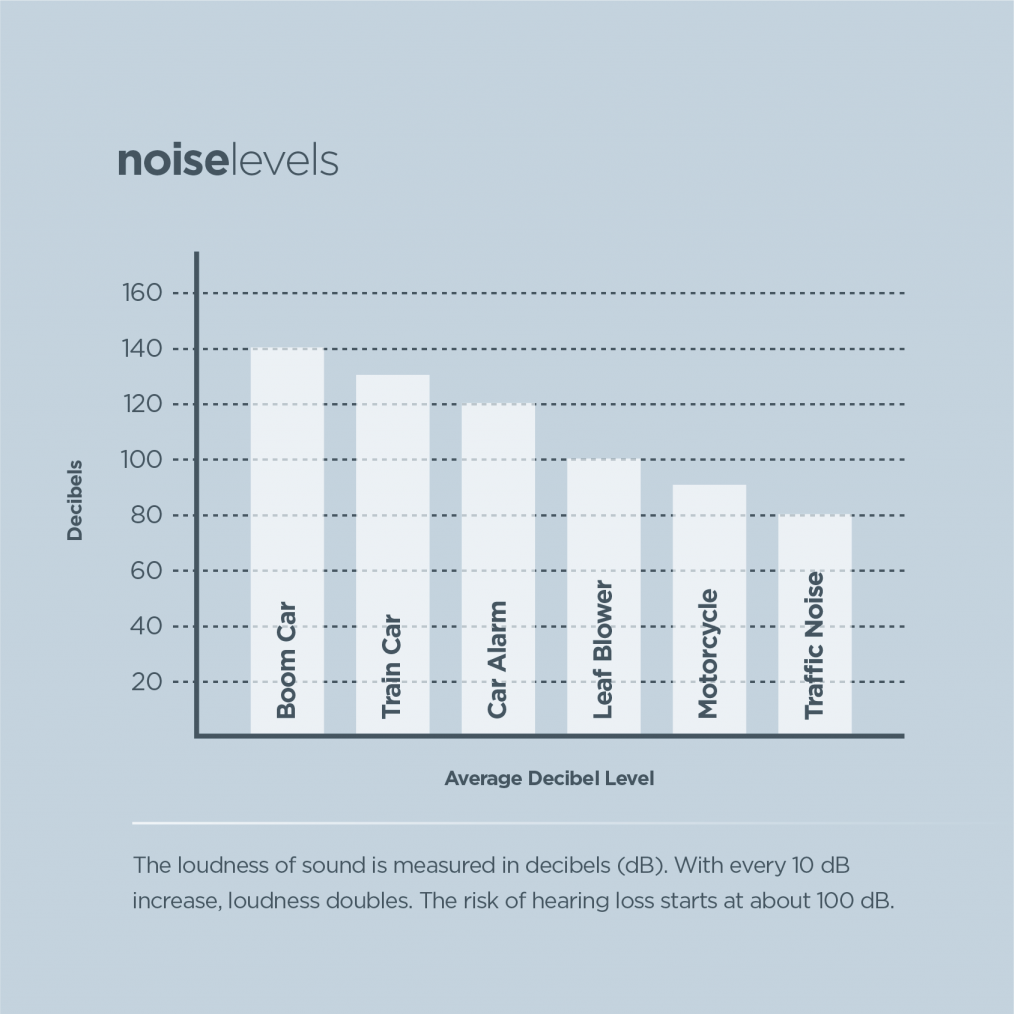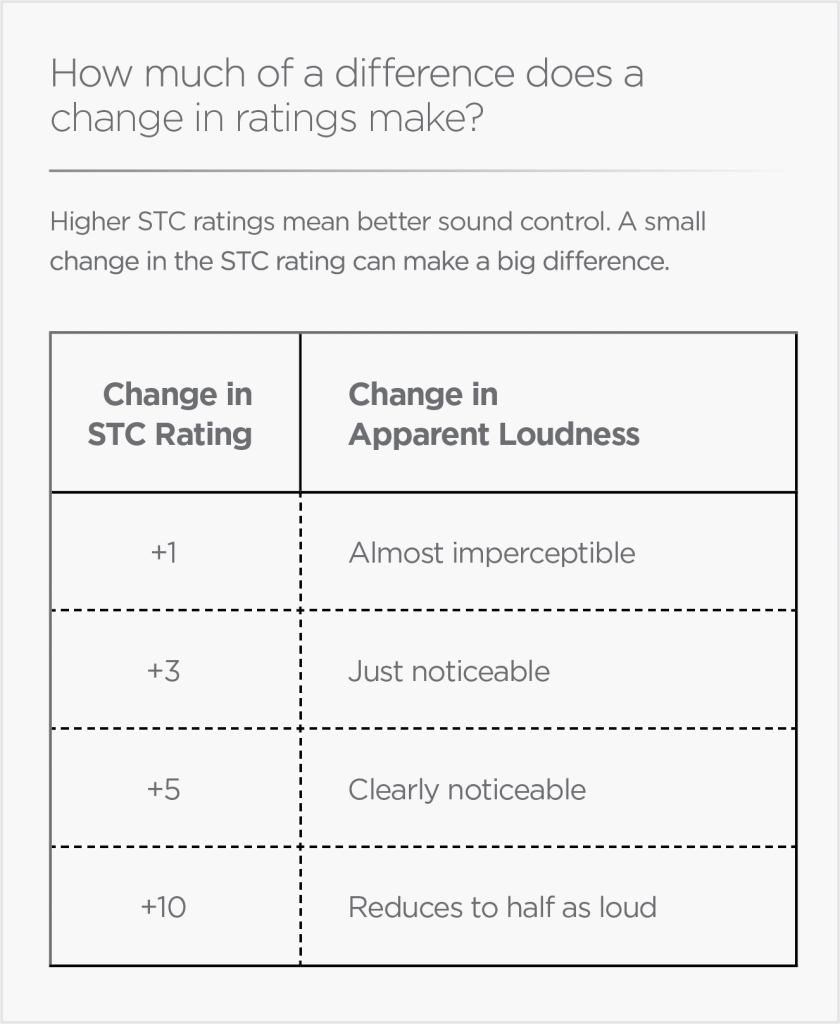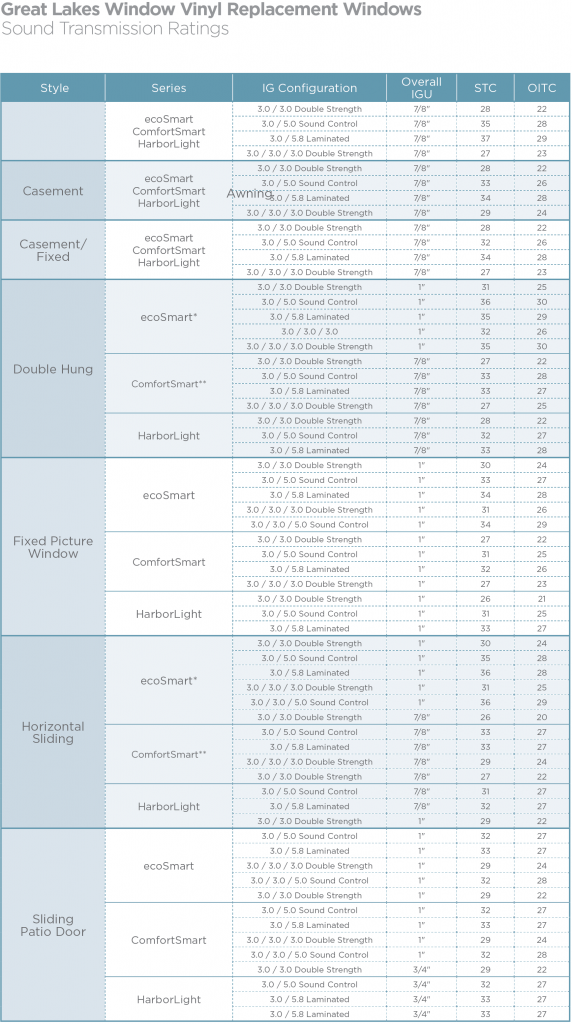Reduce Outside Noise Pollution In Your Home with Sound Control Glass
By Great Lakes Window
It’s a noisy world we live in. There are more cars and trucks on the road, more planes, trains, more people with things that make noise – lawn mowers, leaf blowers, car stereos, motorcycles, car alarms. Our sleep is disturbed by barking dogs and wailing sirens. It’s not just annoying. Outside noise pollution can be bad for your health.
How Outside Noise Pollution Reaches Our Ears
Sound travels through the air in waves that can pass through walls and windows. These sound waves cause our eardrums to vibrate. The vibrations are then transmitted through our inner ear to nerve fibers that transmit information to our brain.
Pitch or frequency is measured in hertz (Hz). Loud noise is caused by bigger, more powerful sound waves while sound waves that are close together are higher in pitch. For example, whistles produce high frequency sound while the rumble of a train or heavy truck produces low frequency sound waves.
Because sound waves can transmit through windows and any gaps in your home’s wall system, it’s important to have quality windows that have been installed correctly with quality installation supplied by our Great Lakes Window network of professional remodelers. Great Lakes Window vinyl replacement windows with sound control insulated glass block and absorb sound waves to keep outside noise pollution where it belongs – outside.
Sound Control Glass: Like Earplugs for Your Windows
All Great Lakes® Window vinyl replacement windows are available with sound control glass. Great Lakes Window sound control insulated glass units (IGU) block outside noise pollution in four ways.
- Thicker glass – Like a thick wall, thicker glass in an IGU is better at blocking sound than thin glass.
- Dissimilar glass – Glass panels of different thicknesses in an IGU block a greater range of sound waves than panels of the same thickness. One panel blocks low frequency sounds and the other blocks high frequency sounds.
- Laminated glass in an IGU – Laminate absorbs sound waves to prevent sound traveling through the glass.
- Wider air space – The air space between the glass panels in an IGU also helps block sound. The wider the air space, the better.
Rating Sound Transmission Performance
Sound transmission ratings are available for many Great Lakes Window insulated glass units (IGUs.) Generally, the higher the number the more effective a window is at preventing outside noise from entering your home. (See ratings below.) Of course, tight window construction and the frame material affect overall acoustic performance. Being a poor conductor of sound, vinyl is an excellent material for sound control.
STC – The most widely recognized rating system for measuring sound control is Sound Transmission Class (STC). STC measures a material’s ability to resist sound transfer at mid- to high-frequency such as speech, radio and television.
OITC – Outdoor-Indoor Transmission Class is a newer rating system for measuring sound control. OITC measures sound resistance to lower frequency noises such as traffic, planes, trains and industrial processes.
So how do the different Great Lakes products stack up when it comes to sound transmission ratings and keeping noise pollution out? Different window styles have different ratings, as you’ll see outlined in the chart below.
Working with a Great Lakes Window dealer will help you identify the right IG Configuration for your sound control needs, and answer any additional questions you might have about how to reduce outside noise pollution in your home. Click below to find a dealer in your area.







